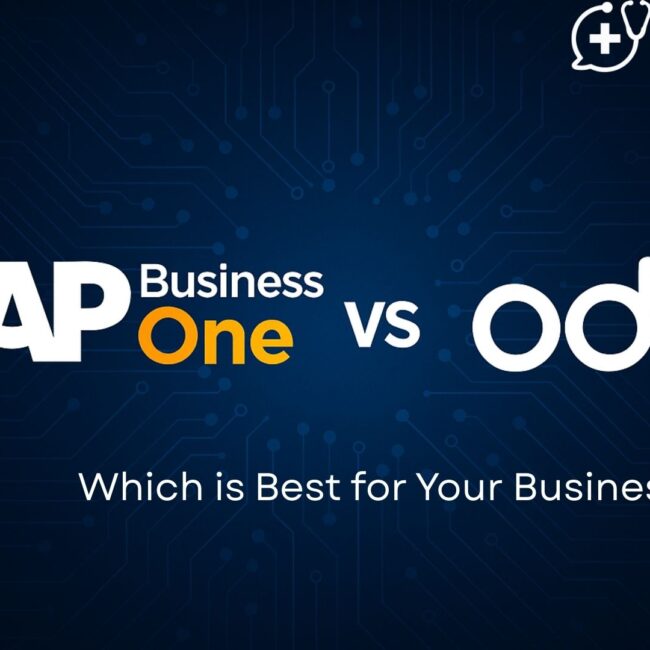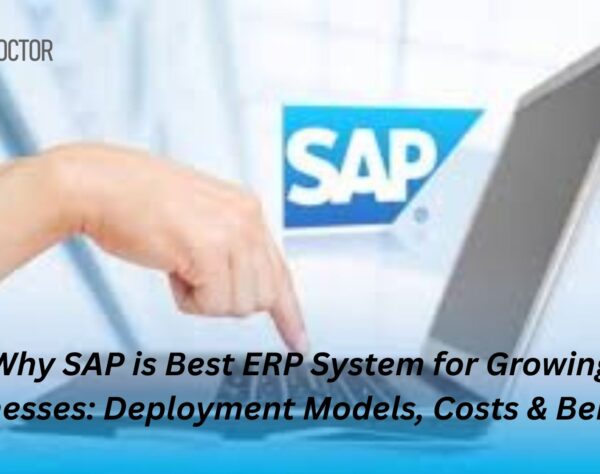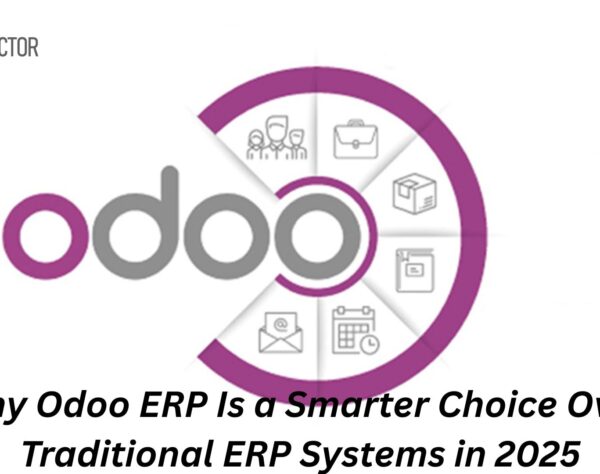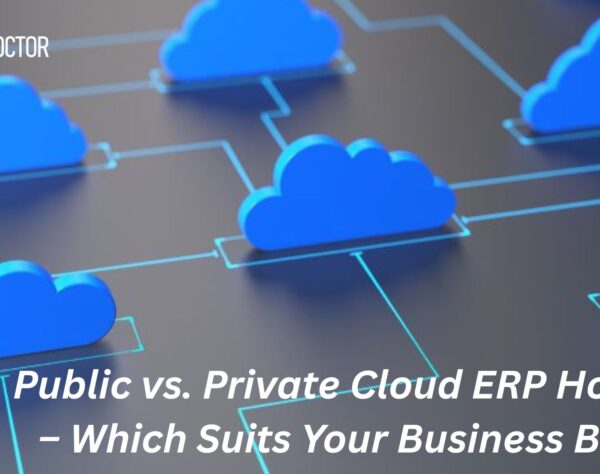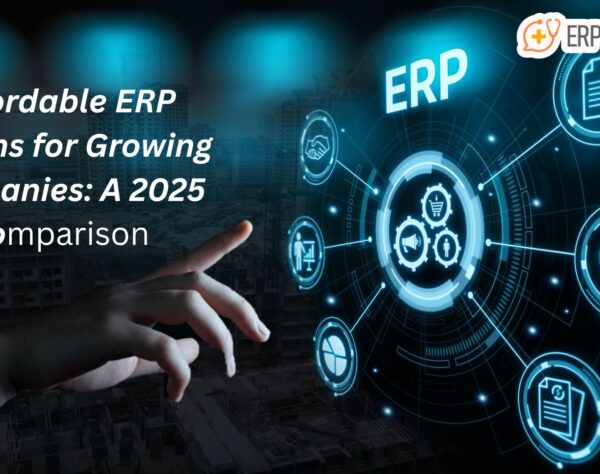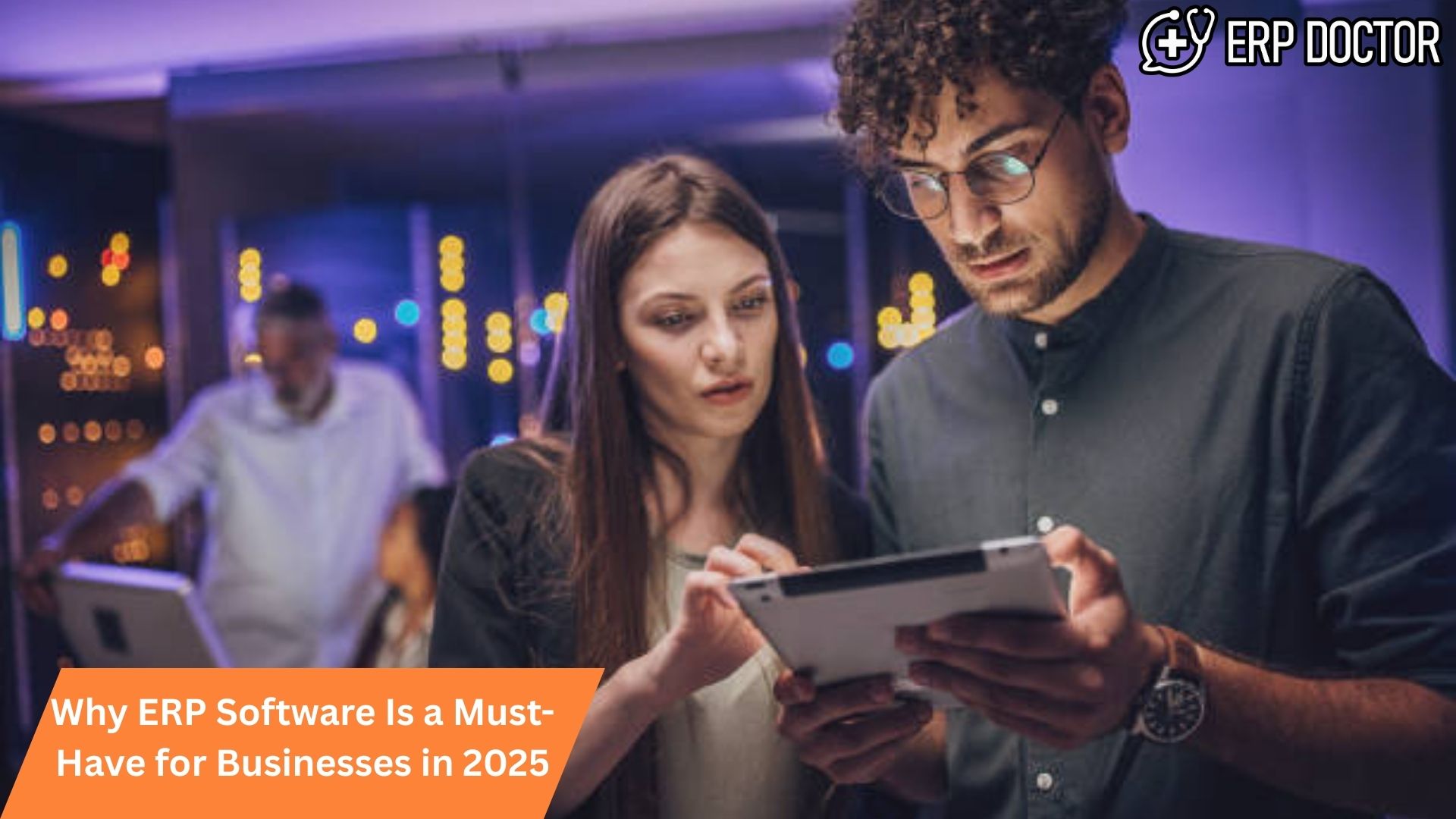
Why ERP Software Is a Must-Have for Businesses in 2025
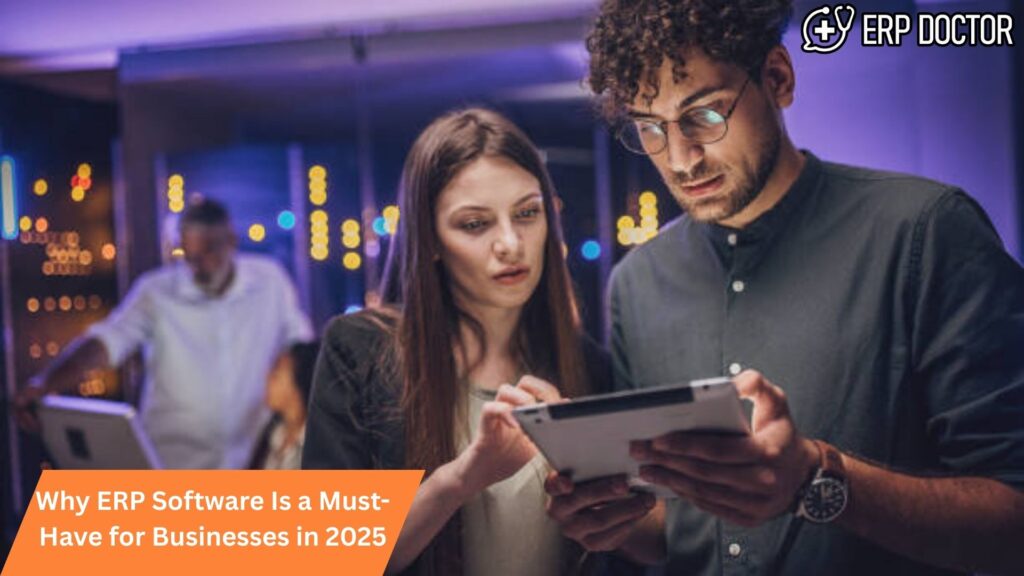
The New Reality: Why ERP Software Matters More Than Ever in 2025
In the fast-evolving world of 2025, businesses can no longer afford to function without robust ERP Software. From startups to large enterprises, agility, efficiency, and data accuracy are no longer luxuries—they are lifelines. That’s where ERP solutions come in. With AI, automation, remote work, and global trade challenges shaping the new business landscape, ERP has emerged as the backbone for decision-making, operations, and growth.
The 2025 Business Landscape: Why Change Is Non-Negotiable
Today’s companies are navigating a complex ecosystem of compliance regulations, supply chain disruptions, evolving customer expectations, and hybrid workforce models. Traditional methods and disconnected tools simply don’t cut it anymore. ERP software offers integrated visibility and automation that helps businesses not only adapt but thrive.
Here’s why 2025 is the defining year to adopt—or upgrade—your ERP solution.
1. Real-Time Data = Real-Time Decisions
In 2025, data delay is profit decay. Businesses need access to live dashboards, predictive insights, and trend forecasting to stay ahead of the curve. ERP software centralizes data from finance, sales, inventory, procurement, and HR into one place, enabling smarter, faster decisions.
With advanced ERP solutions, companies no longer rely on guesswork—they work with clarity and precision.
2. Operational Efficiency at Scale
Manual processes are the biggest threat to productivity. Whether it’s invoice generation, stock management, or employee tracking, ERP software automates repetitive tasks and reduces human error.
The result? A streamlined, cost-effective operation where staff focus on strategy rather than paperwork. In short, ERP eliminates waste and unlocks performance.
3. Compliance Is Easier with ERP
Governments and industries are tightening regulations, from e-invoicing mandates to ESG reporting. ERP solutions simplify compliance with built-in checks, audit trails, and documentation workflows.
When you use the right ERP software, staying compliant becomes part of your everyday process—not a quarterly headache.
4. Enhanced Customer Experience
ERP isn’t just internal. With integrated CRM and service management modules, ERP solutions improve how businesses interact with customers. Quicker deliveries, personalized offers, and responsive support are made possible when data flows seamlessly across departments.
A smart ERP system ensures your customer touchpoints are consistent and competitive.
5. Workforce Agility in a Hybrid World
Work-from-anywhere isn’t a trend; it’s a permanent shift. ERP software supports remote workflows by offering cloud-based access, role-based permissions, and mobile apps. Teams can collaborate in real-time, whether they’re on the shop floor or halfway across the world.
With the right ERP, geography is no longer a limitation.
6. Scalability Without Complexity
Growing pains are real—unless your systems are built for scale. The best ERP software grows with your business. Add new locations, products, or services without restructuring your operations.
ERP solutions are modular and customizable, which means you only pay for what you need, when you need it.
7. Competitive Edge Through Technology
In a world driven by AI, IoT, and machine learning, ERP software gives businesses a tech-enabled edge. Whether it’s forecasting demand using AI or tracking real-time machine performance, ERP solutions bring innovation to every level of business.
Firms that leverage modern ERP systems are 33% more likely to be market leaders, according to recent industry surveys.
8. Centralized Control for Decentralized Teams
From inventory spread across multiple warehouses to finance teams working remotely, 2025 businesses need centralized visibility. ERP software ensures that no matter how many moving parts your business has, everything connects to one source of truth.
That kind of clarity prevents miscommunication, duplication, and delays—three silent killers of growth.
Final Thoughts
In 2025, the businesses that succeed are those that prioritize integration, intelligence, and innovation. These aren’t just buzzwords—they’re made possible by ERP.
The era of scattered spreadsheets and siloed systems is over. With the right ERP software, businesses gain the resilience, speed, and adaptability they need to succeed in a demanding digital era.
Now is the time to ask: Is your business ERP-ready?
✅FAQs
1. What makes ERP software essential for 2025?
ERP software integrates and automates core business functions, enabling companies to remain agile, compliant, and data-driven in a fast-changing market.
2. How does ERP support hybrid or remote teams in 2025?
Modern ERP systems offer cloud access, mobile dashboards, and role-based security—perfect for distributed or hybrid teams.
3. Can ERP solutions help businesses meet ESG and sustainability goals?
Yes, ERP solutions now include modules that track carbon footprints, waste reduction, and ethical sourcing for ESG reporting.
4. Is ERP software customizable for different industries?
Absolutely. ERP solutions offer industry-specific modules tailored to sectors like manufacturing, retail, healthcare, and services.
5. What’s the difference between ERP software and traditional management tools?
ERP provides real-time integration across all departments, while traditional tools often operate in silos, leading to delays and duplication.
6. How does ERP improve customer service delivery?
ERP connects sales, inventory, and support data, enabling faster response times, better order fulfillment, and improved customer satisfaction.
7. Are there AI-powered ERP solutions in 2025?
Yes, many ERP software providers now include AI for demand forecasting, anomaly detection, and workflow automation.
8. How does ERP help with business continuity and risk management?
ERP software centralizes data and provides real-time alerts, helping businesses identify and address potential risks like supply chain disruptions or compliance issues before they escalate.
9. What risks do businesses face by not using ERP in 2025?
Without ERP, businesses face data silos, compliance issues, slower decision-making, and higher operational costs.
10. How do I choose the best ERP solution for my business?
Evaluate based on your industry, company size, feature needs, cloud capabilities, vendor support, and long-term scalability.



